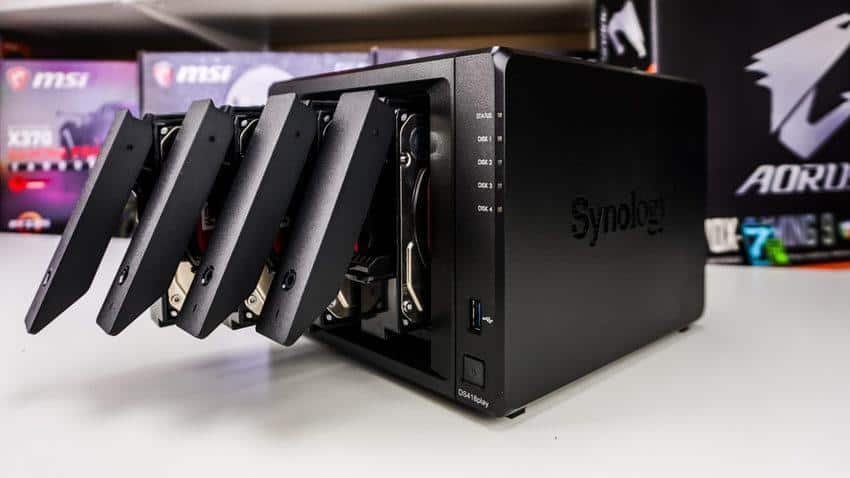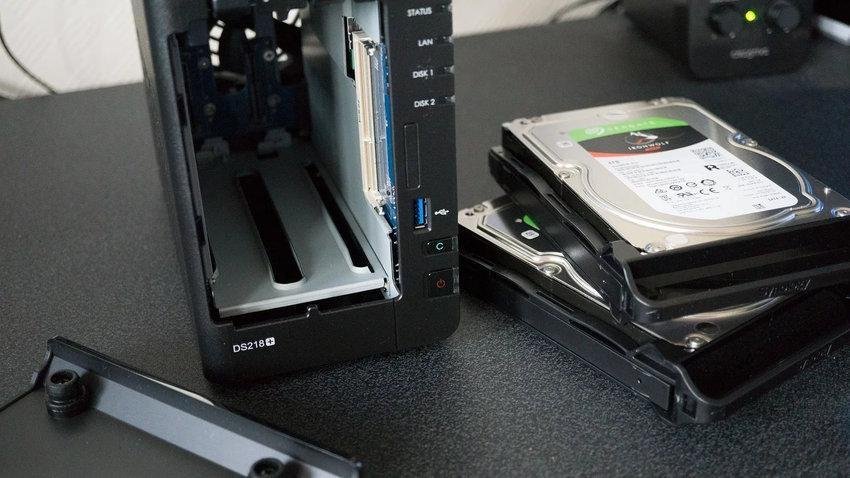NAS is a smart internet solution for storing your data which is becoming more and more popular. Although it caters to the needs of businesses, they have begun to become ideal for home users as well.

You all definitely have personal data stored on your various devices. Personal photos, videos, tasks, and a host of other things that you just can't find anywhere if you lose them. Thus arose the need for secure storage of this data. Systems have emerged that claim to be able to secure your data, such as RAID, the cloud, the servers, the mirror, and the NAS that we will deal with today.
What is NAS?
The NAS (Network attached storage) is a network storage unit. That is, it is a device that hosts hard disks and that is connected directly to your router. Inside it has a small one motherboard, a processor, a memory and an ethernet input.

This device is ideal for setting up a personal cloud that will be managed exclusively by you, without the intervention of third parties, and you will have access from all your devices that are connected to your internal network.

In addition, due to its internet presence you can access your data via internet from anywhere in the world, as well as you can define who and where can enter and see your data. Whatever you do with a public cloud, like Google.
What NAS offers you
With NAS you can easily store your data, safely and reliably. Instead of storing your photos locally on your computer's hard drive, you can use NAS to store them online (not online).
Network data will now be accessible to any user who connects to your network and of course give them the appropriate permissions. NAS devices can easily "go out" on the internet and this will allow you to share your photos with your cousin in America. Or continue your work from your university cafeteria.

Because NAS devices can accept software of your choice, you can install a data synchronization program on them, such as Resilio Sync, which you will install at the same time on all your devices, whether they are Windows desktop, or MacOS, or Linux, or mobile phones (Android, Apple, Windows). So you can automatically synchronize your data directly to the NAS. In other words, you will take a photo and it will be automatically saved on the NAS in your home. If your cell phone is stolen at least you will not cry your photos.
Some NAS devices have their own file synchronization software, such as My Digital Cloud from Western Digital.
What will you pay
The cost to home users is not prohibitive. When making your choice, pay attention to two or three points. First NAS is sold with and without hard drives internally. Second, pay attention to its features, such as interface, management, simultaneous connection with multiple users, connection to your operating system, etc. Do not forget that although it is a mini computer that usually runs a basic linux, it has no screen and you should see admin panel from your computer.

Prices without disks start at 73 euros for a machine that can accept two disks. The cost of the discs is an additional charge and depends on the TB you want to have. Prices with integrated disks start from 100 euros for a machine with 1 16 TB disk.
We would not recommend you to buy a NAS with 1 disk, because you will not have any kind of backup in case of disk failure. Choose to accept at least two disks.

NAS systems can also be found on the market from hard drive companies, where of course they contain their own disks. Such companies are Western Digital, Toshiba, Fujitsu.
Watch below the relevant video of Western Digital in Greek:
Pros and cons
- + Provides your personal cloud that only you manage
- + It has a large storage space that depends only on the hard drives you choose to equip it
- + Very simple to use. It is almost plug and play without requiring specialized computer knowledge
- + Remote access from all over the world securely, since it is not mediated by a third party server
- + Supports synchronization of your files from all your devices, by installing the appropriate software (eg Resilio Sync, My Cloud etc)
- + Supports the RAID standard, with hard disk arrays to prevent data loss
- + Completely free after the initial cost.
- - It has an initial cost of buying machine and discs.
- – Their speed except internal network depends on your internet connection
- - As a cloud is not suitable for complete beginners as it requires basic management knowledge of your router
- - There are delays when space is depleted
Can you convert your old pc to NAS?
Do you have an old computer crawling in the corner? You can wake him up with a little effort and a lot of patience and turn it into a NAS machine.
First of all, you should equip it with at least two large-capacity hard drives and a small one for the operating system and auxiliary programs.letterthe. It doesn't have to run Windows, you can put some free Linux distribution on it.

Then you need either RAID or with a script to create a kind of backup on two identical disks.
Finally you need to install a utility that will turn your computer into a NAS, such as Work or Resilio BTSync. Maybe a program that monitors the health of the discs and warns you if something goes wrong, such as the Crystal Disk.
This solution is not for beginners and you should at least be a power user to be able to complete it without despair.
In conclusion
You need to find a way that suits you, to back up your personal data. If you choose the cloud you have two solutions. With 30 euros per year for a public cloud in Google of 200 GB or with 300 euros one time for a private cloud of 4TB. The decision is yours.






FTIAXTE EPITELOYS AYTO TO AUTOREFRESH !!!!!
3h fora gia na grapso ena sxolio !!!!!!!
Sto telos apla den grafeiw TIPOTE
from 500 sec it went to 1000, I hope it reaches